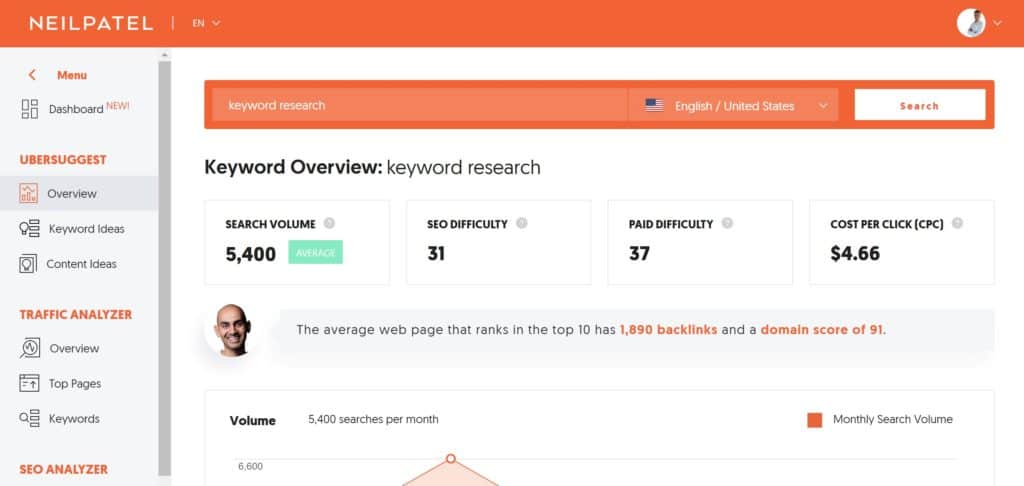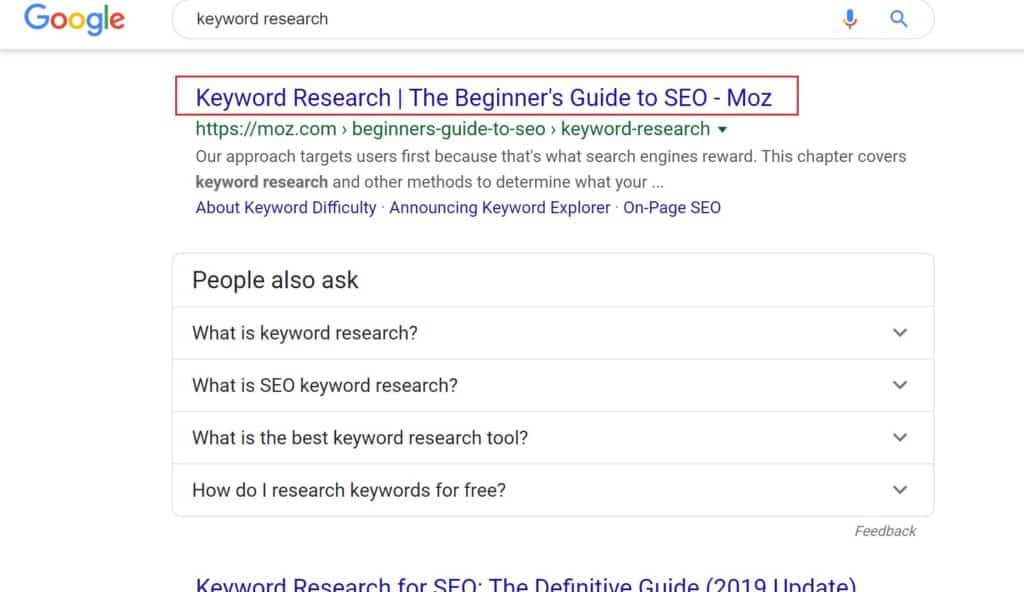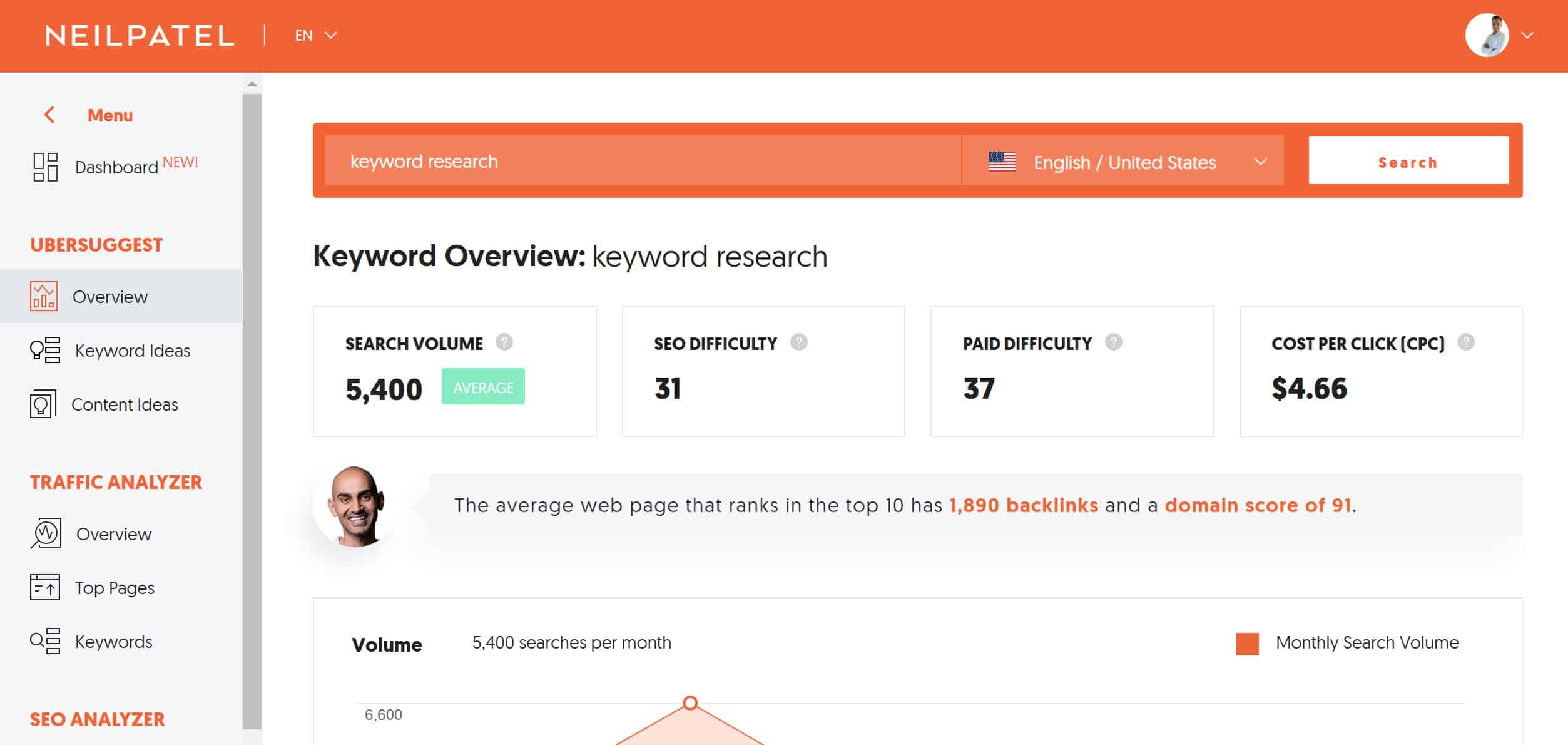We all know that SEO takes work over a long period of time in order to see noticeable results. You need to be patient if you want to see some good results come from SEO. For that reason, I put together 5 things you can do right away to improve your rankings quickly.
1. Optimize keyword usage in content
Optimizing keyword usage in your content is a big way to improve your rankings quickly. Find keywords based around your content that would be beneficial to rank for, are relevant, and also attainable to rank for. There are a few ways you can do this, and it can be done with both paid and free tools.
I would recommend coming up with keywords based around your topics and plugging them into a keyword tool. Some of the better-paid tools are Ahrefs and SEMRush, while some of the more useful free tools would include Google Keyword Planner and Ubersuggest. These tools will allow you to find keywords that get searched and are also attainable to rank for.

Once you have the keywords picked out, you need to strategically place them in your content. Per Google sources, having keywords in headings are not as important as it used to be. They evaluate all the content and do not put extra priority on headings. It is a good idea to place your keyword in the content and headings at least a few times, but don’t overdo it. It can hurt your rankings if you get into the territory of keyword stuffing. It is also helpful to include variations of your keyword because it is more natural in the article, instead of stuffing exact match keywords in the content as much as possible.
Include keyword variations is another strategy that can help improve your rankings. There are a few reasons this might help your content rank better. The first reason is because it will make your article sound more natural when you use variations instead of just exact match keywords. The second reason it can help you is because it opens the door to rank for not only your main target keyword, but for those variations you are using. I would recommend only using your exact match keyword a few times and using variations as much as possible throughout the content.
2. Increase load speed
Load speed is a big ranking factor that you do have some control over. Google is most concerned with providing a good user experience for their users, and this includes load speed. Users do not want to sit and wait more than a few seconds for a page to load. This will often result in users going to a different search result and leaving your website entirely. This is something that Google can easily measure, and if there is a pattern it will affect your rankings.
Increasing your load speed can be a tough thing to do, but it is much easier if you are using WordPress to build your website. It can include anything from minifying CSS to reducing image sizes. There are many plugins that can actually do this for you, which I would recommend checking out.
Here are some helpful plugins:
- W3 Total Cache
- WP Super Minify
- WP Rocket
These are plugins that do most of the work themselves, so you do not have to worry about how to increase load speed on your own. I would be careful with any image reduction plugins that you install, however. Some of them are great, but I have noticed the quality of my images decreasing drastically with a few different plugins I have tried.
3. Create high quality content
Creating high quality content is more important than ever today. With every search engine algorithm update, the search engines are getting smarter and smarter. With the goal of providing the best user experience possible, it’s no surprise that search engines put a high priority on providing high quality content to its users.
High quality content differs depending on the keyword you are trying to rank for. It is important to think about search intent when you are trying to provide high quality content. Think about when users are searching for your content, what is actually going to solve their problem or answer their question?
For some topics, it may be better to add more textual information, but for other topics it might be better to add more pictures and videos. For example, I created an article on chiropractic SEO. In the article I went in depth about how chiropractors can implement SEO on their website. Images are not going to be too helpful in this scenario, since it needs to be more informative.
A good way to determine how you should handle this is to think about what you think the search intent is, as well as looking at the top search results. Search engines obviously agree with whatever content is displayed in the top results, because they decided those results are the most valuable. Do not copy the content in the top results but use that content as a reference to determine what type of content is working the best for that topic.
If your focus is to provide value to users rather than creating the content to rank better, you will see your rankings improve drastically. It is easy to tell if an article is written for users or search engines. Some giveaways include not going very in-depth on topics and using one specific keyword too many times. As a reader, it feels like there isn’t any real value from the article.
4. Internal linking
Internal linking always takes a backseat to backlinks and it makes sense, because backlinks are arguably the most important ranking factor. However, forgetting about internal linking is a big mistake. Internal linking is something that you have complete control over, and it can make a big impact on your rankings.
Not only do search engines use links coming from other websites to determine what pages are important, they also look at your own internal linking. If you are linking to a specific page from many of your other pages, this is a sign to search engines that the page being linked to is important.
They are not as important as backlinks, but they work in a similar way. The nice thing about it is that internal linking is something that you have control over, where backlinks are not something you have much control over.
Internal linking is a quick way to increase your rankings for specific pages, and it doesn’t take much work. Be sure that you don’t force internal links into your website because you want a page to rank better, it still needs to be a relevant place to put that link.
5. Title tag/Headers
Your title tags and headers are important relevancy signals to search engines on what your page is about. The title tag is the clickable text that shows up in the search engine results pages. Not only does this show search engines what your content is about, it also shows users.

Optimizing title tags can help improve your rankings, but it is also important that your title tag is relevant to the search query so that users will want to click on the result. Do not just write the title tag for search engines. Be sure that it is enticing for users so that they will want to click on your result. There is no point in ranking high in the search results if nobody will click on your search result.
Google recently released a statement that H1’s are not as important as they used to be. H1’s used to be one of the most important relevancy signals, but now they are treated with the same priority as any other text on the page. Search engines, specifically Google, look at the text on your page as a whole to determine what exactly it is about. By natural including your keyword in your title tag and headers, it can show search engines what your content is about and help you rank better.
Another way that headers can benefit your SEO is because they help improve the user experience. Having a well-structured post with headings that break down the content make it much easier to consume. I would recommend using many headers in your content because it makes it easier to read and understand. I also like to use a table of contents which help users better understand what your content is about and easily navigate to different sections.
Takeaways
There are no ways to instantly improve your SEO. To see real results with SEO, you need to be willing to put in the time and effort to achieve high rankings. It is also important that you are consistent with your SEO strategy.
On-page optimization such as keywords, headings, and content quality are all ranking factors that you have control over and can adjust right now. If you are using WordPress there are many plugins you can install that will help improve your load speed, which will likely improve your rankings as well.

